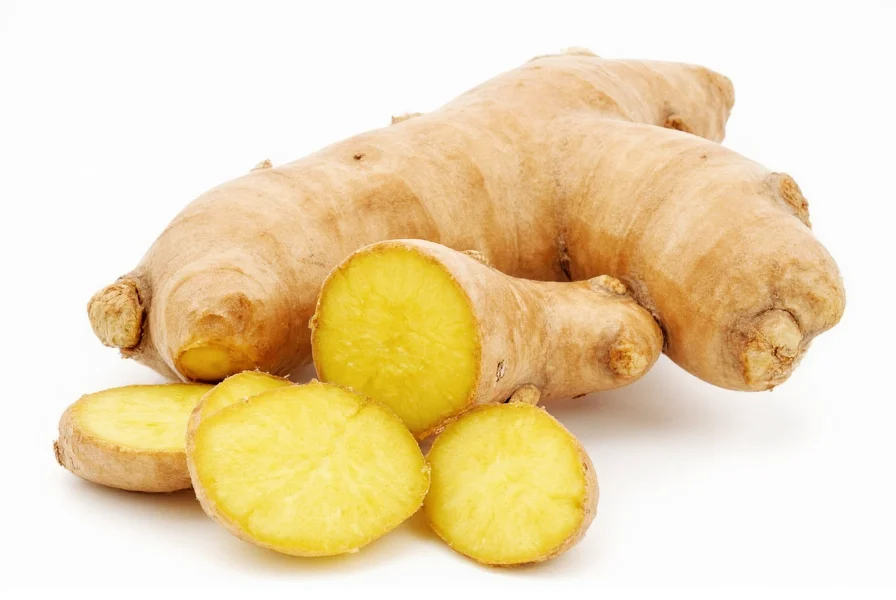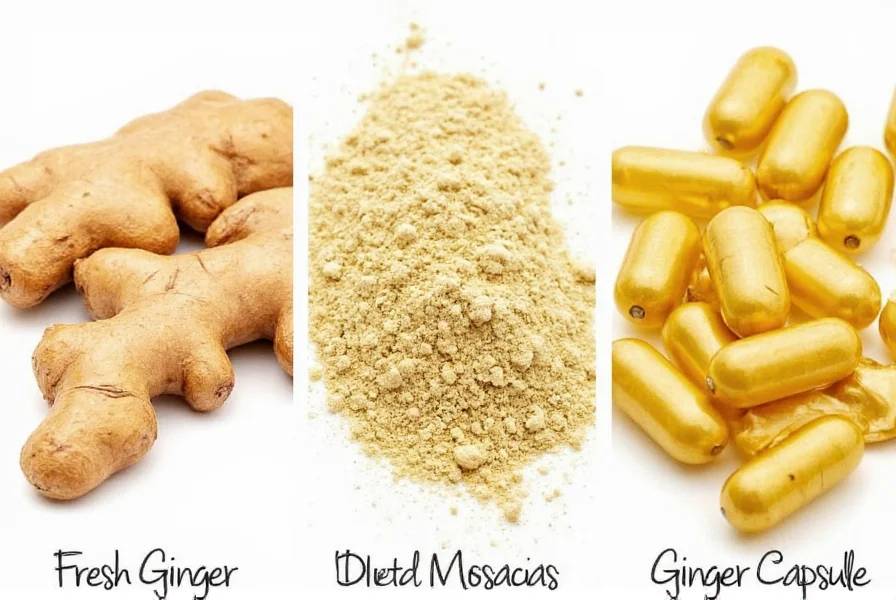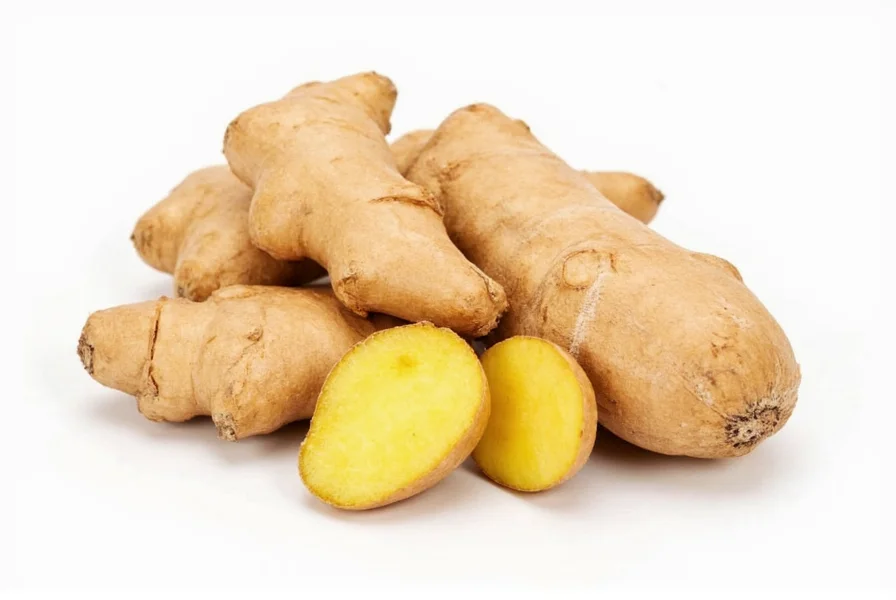For centuries, ginger has been revered in traditional medicine systems across Asia and the Middle East. Modern science now validates many of these ancient uses, revealing ginger's remarkable therapeutic potential. This rhizome powerhouse contains over 400 bioactive compounds, with gingerol being the most extensively studied for its medicinal properties.
The Science Behind Ginger's Healing Power
Ginger's therapeutic effects stem primarily from gingerols and shogaols, compounds that give ginger its distinctive pungency and biological activity. These compounds demonstrate significant antioxidant capacity—measured at 10,000 μmol TE/100g in fresh ginger—surpassing many common fruits and vegetables. Unlike synthetic antioxidants, ginger's natural compounds work synergistically with other phytochemicals in the plant, creating what researchers call the "entourage effect" that enhances overall bioavailability and effectiveness.
Top 6 Evidence-Supported Health Benefits of Ginger
Nausea and Vomiting Relief
Multiple clinical trials confirm ginger's effectiveness against various forms of nausea. A comprehensive 2022 meta-analysis published in Nutrition Reviews examined 21 studies involving over 2,000 participants. The research demonstrated that 1-1.5 grams of ginger daily significantly reduced pregnancy-related nausea by 31% compared to placebo. For chemotherapy patients, ginger supplementation (0.5-1g daily) decreased acute nausea severity by 38% when combined with standard antiemetic medications.
Digestive Health Enhancement
Ginger accelerates gastric emptying, with studies showing it can reduce the time food spends in the stomach by 25-50%. This makes it particularly valuable for people with functional dyspepsia. The European Medicines Agency officially recognizes ginger for "relief of mild stomach upset and feelings of fullness." Ginger also stimulates bile production, aiding fat digestion and potentially reducing bloating and gas.
Anti-Inflammatory and Pain Reduction
Ginger's anti-inflammatory effects rival some non-steroidal anti-inflammatory drugs (NSAIDs) without the gastrointestinal side effects. In a 6-week trial with 247 osteoarthritis patients, those taking 500mg of ginger extract twice daily reported 30% less pain and 28% improved mobility compared to placebo. The mechanism involves gingerols inhibiting COX-2 enzymes and reducing inflammatory cytokines like TNF-α and IL-1β.
| Health Benefit | Effective Dosage | Timeframe for Results | Scientific Support Level |
|---|---|---|---|
| Nausea relief | 1-1.5g daily | Within 30-60 minutes | ★★★★★ (Strong) |
| Osteoarthritis pain | 500mg-1g daily | 4-6 weeks | ★★★★☆ (Good) |
| Muscle pain | 2g daily | 24-48 hours | ★★★☆☆ (Moderate) |
| Blood sugar control | 1.6-3g daily | 8-12 weeks | ★★★☆☆ (Moderate) |
Cardiovascular Protection
Regular ginger consumption shows promise for heart health. A 2020 clinical trial in Nutrition, Metabolism and Cardiovascular Diseases found that 3g of ginger powder daily for 8 weeks reduced LDL cholesterol by 17% and triglycerides by 19% in participants with hyperlipidemia. Ginger also inhibits angiotensin-converting enzyme (ACE), potentially contributing to modest blood pressure reduction. These effects, combined with ginger's antiplatelet activity, create a multifaceted approach to cardiovascular protection.
Blood Sugar Regulation
For individuals managing type 2 diabetes, ginger offers complementary support. Research published in the Journal of Complementary and Integrative Medicine demonstrated that 2g of ginger daily for 12 weeks reduced fasting blood glucose by 12% and HbA1c by 0.9%—comparable to some pharmaceutical interventions. Ginger enhances insulin sensitivity through activation of AMP-activated protein kinase (AMPK), the same pathway targeted by metformin.
Neuroprotective Effects
Emerging research suggests ginger may protect against neurodegenerative conditions. In animal studies, 6-shogaol (a ginger compound) reduced amyloid plaque formation by 45% and improved cognitive function in Alzheimer's models. Human studies are limited but promising—regular ginger consumption correlates with better working memory and attention in middle-aged women, according to research in the Journal of Medicinal Food.
How to Incorporate Ginger for Maximum Benefit
The form of ginger significantly impacts its therapeutic effectiveness. Fresh ginger contains higher levels of gingerols, while dried or cooked ginger increases shogaol content, which has greater anti-nausea potency. For digestive issues, chew 0.5-1 inch of fresh ginger root 20 minutes before meals. For inflammation, consider standardized extracts providing 5% gingerols. Culinary uses matter too—adding ginger to meals increases the absorption of other beneficial compounds by up to 30% through enhanced bioavailability.

Safety Considerations and Potential Interactions
Ginger is generally safe at culinary doses (up to 4g daily), but certain populations should exercise caution. People taking blood thinners like warfarin should consult their physician before consuming therapeutic doses (>1g daily), as ginger may enhance anticoagulant effects. Those with gallstones should avoid high doses as ginger stimulates bile production. Pregnant women can safely consume up to 1g daily for nausea relief, but higher doses in the third trimester require medical supervision. Mild side effects like heartburn or mouth irritation occur in about 2% of users at therapeutic doses.
Choosing Quality Ginger Products
Not all ginger products deliver equal benefits. Look for standardized extracts specifying gingerol content (minimum 5%). For fresh ginger, choose firm roots with smooth skin and avoid those with wrinkles or mold. Powdered ginger loses potency after 6 months, so check expiration dates. When selecting supplements, verify third-party testing for heavy metals—some ginger products, particularly from certain regions, have shown elevated cadmium levels in independent testing.

Conclusion: Ginger's Place in Modern Wellness
Ginger represents one of the most scientifically validated functional foods available. Its multi-system benefits—from digestive support to potential neuroprotection—make it a valuable addition to preventive health strategies. While not a replacement for medical treatment, incorporating 1-2g of ginger daily through food or supplements provides measurable health advantages with minimal risk. As research continues to uncover new mechanisms of action, ginger's status as both culinary staple and therapeutic agent appears increasingly justified by modern science.











 浙公网安备
33010002000092号
浙公网安备
33010002000092号 浙B2-20120091-4
浙B2-20120091-4